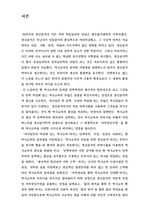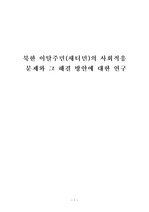

-
서지정보
· 발행기관 : 한국현대정신분석학회
· 수록지 정보 : 현대정신분석 / 11권 / 2호 / 111 ~ 136페이지
· 저자명 : 이만우
초록
이 논문의 목적은 영국 정신분석의 전통에서 정신분석과 사회심리연구가 결합되어 발전해온 방식, 특히 클라인 정신분석의 영향 하에서 이루어진 사회심리연구의 기본 관점을 라깡 정신분석에 입각하여 비판적으로 검토하고 정신분석이 사회심리연구에 어떻게 기여할 수 있는가에 대한 이론ㆍ방법론적 시사점을 색출하는데 있다.
먼저, ‘사회심리적인 것’을 라깡의 ‘뫼비우스의 띠’ 이미지로 이론화하여 ‘여기 내부’와 ‘저기 외부’, ‘주체’와 ‘대상’, ‘심리적인 것’과 ‘사회적인 것’ 사이의 경계설정을 부정하는 ‘초학제간(trans-disciplinary)’ 실천으로 사회심리연구를 자리매김하였다.
다음으로, 주체성에 대한 질적 연구로서의 정신분석이 무의식적 과정에 어떻게 주의를 기울이는가를 클라인 학파의 사례기술에 대한 비판을 통해 보여줌으로써 사회심리연구에 대한 기여와 어려움을 확인하였다.
정신분석은 인간 심리의 ‘내면화 과정’을 설명하는 일련의 기계적 응용개념으로 사회심리연구에 기여할 바가 없으며, 정신분석의 ‘파괴적인’ 수행적 요소들이 전면에 부각되어 ‘반성성’이 작동함으로써 ‘사회심리적인 것’이 분석가와 피분석자 및 연구자와 연구참여자의 행위를 통해 형성되는 방식이 인식될 때 기여할 수 있는 것이다.영어초록
This paper examines the ways in which some debates are developing in the British psychoanalytic contect, from a position of Lacanian psychoanalysis towards both psychosocial studies and psychoanalysis. And it aims to seek out some comments of making a psychoanalytic contribution to developing psychosocial studies theoretically and methodologically.
Firstly, I argue psychosocial studies seeks to be trans- (as opposed to inter-) disciplinary practice that negates the easy assumption of "in herem out there", subject and object, psychic and social in theorizing what we means by the unhypenated psychosocial in terms of most obvious image, with or without its Lacanian gloss, the Moebius strip.
Secondly, I show a psychoanalytic contribution to developing psychosocial studies as a qualitative research method by means of drawing attention to interpretating unconscious processes which they have beem presented by Kleinian method of case histories.
Finally, I argue psychoanalysis has relaively little to contribute to psychosocial studies other than a set of rather mechanistic ideas that explain processes of internalization but has more to offer when its disruptive and performative elements are placed in the foreground, that is, when the kind of reflexivity it advances is one that acknowledges the way the phenomena of the psychosocial are produced through the actions of analyst and analysant, researcher and researched.참고자료
· 없음태그
-
자료후기
-
자주묻는질문의 답변을 확인해 주세요

꼭 알아주세요
-
자료의 정보 및 내용의 진실성에 대하여 해피캠퍼스는 보증하지 않으며, 해당 정보 및 게시물 저작권과 기타 법적 책임은 자료 등록자에게 있습니다.
자료 및 게시물 내용의 불법적 이용, 무단 전재∙배포는 금지되어 있습니다.
저작권침해, 명예훼손 등 분쟁 요소 발견 시 고객센터의 저작권침해 신고센터를 이용해 주시기 바랍니다. -
해피캠퍼스는 구매자와 판매자 모두가 만족하는 서비스가 되도록 노력하고 있으며, 아래의 4가지 자료환불 조건을 꼭 확인해주시기 바랍니다.
파일오류 중복자료 저작권 없음 설명과 실제 내용 불일치 파일의 다운로드가 제대로 되지 않거나 파일형식에 맞는 프로그램으로 정상 작동하지 않는 경우 다른 자료와 70% 이상 내용이 일치하는 경우 (중복임을 확인할 수 있는 근거 필요함) 인터넷의 다른 사이트, 연구기관, 학교, 서적 등의 자료를 도용한 경우 자료의 설명과 실제 자료의 내용이 일치하지 않는 경우
찾으시던 자료가 아닌가요?
지금 보는 자료와 연관되어 있어요!
문서 초안을 생성해주는 EasyAI





